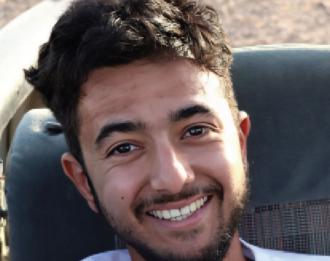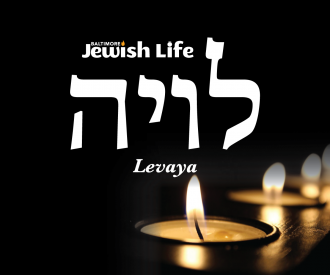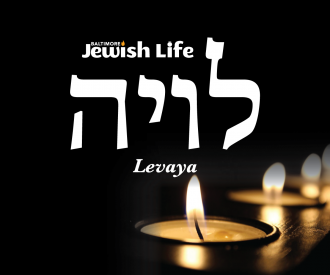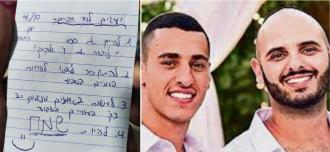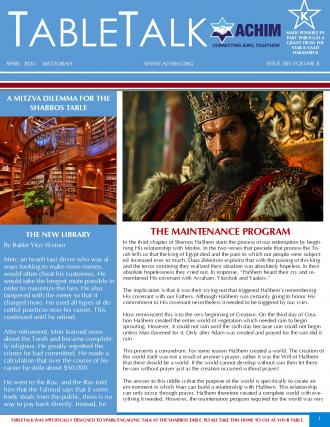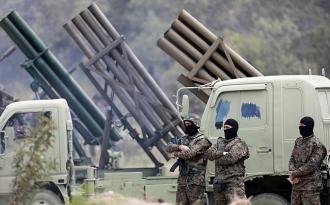New York - On Friday night, best friends and New York University students Leen Dweik and Rose Asaf attended a vigil at their school’s Islamic Center for the victims of the New Zealand mosque massacre.
One of the other attendees caught their attention: Chelsea Clinton.
The former first daughter last month tweeted to her 2.4 million followers criticising Democratic Representative Ilhan Omar for comments about Israel that included what some saw as anti-Semitic stereotypes.
“Co-signed as an American,” Clinton tweeted in response to a tweet condemning Omar. “We should expect all elected officials, regardless of party, and all public figures to not traffic in anti-Semitism.”
Dweik, a Muslim Palestinian, and Asaf, a Jewish Israeli American, took offence to Clinton’s reaction, particularly her reference to “as an American”. Was Clinton suggesting that she was more “an American” than Omar, a Somali refugee and one of the two first Muslim women elected to Congress?
On Friday night, Dweik couldn’t let the moment pass without telling Clinton how she’d made them feel. After the event, she confronted Clinton about her tweet, accusing her of adding to the hatred of Muslims.
“This, right here, is a result of a massacre stoked by people like you and the words that you put out into the world,” Dweik told Clinton. “And I want you to know that and I want you to feel that deep down inside. Forty-nine people died because of the rhetoric you put out there.”
“I’m so sorry that you feel that way,” Clinton said. “Certainly, it was never my intention. I do believe words matter. I believe we have to show solidarity.”
Afterward Asaf posted a short clip of the encounter. It quickly went viral. By Saturday afternoon, Asaf had deleted her Twitter account because of the intense backlash and threats she and Dweik received.
Speaking exclusively to the Washington Post, the women shared why they felt compelled to confront Clinton and why they feel the reflexive defence of the former first daughter furthers their point.
Asaf said she felt Clinton’s actions were worthy of criticism, noting that she was one of the first high-profile figures to condemn Omar.
“She was the one who made this a story,” Asaf said, especially by using “as an American,” which Asaf saw as an “anti-immigrant trope.
“To me, when speaking of someone who is a refugee, it’s a dog whistle, it’s signalling this is a patriotic issue and that nationalism excludes people like Ilhan Omar,” she said.
“I wanted to convey my grief,” Dweik added. “It wasn’t this planned attack ... I very specifically waited until after the vigil. I wanted this person to know they’ve caused harm. You’ve done things that have hurt this community and the grief people feel today you’re not separate from.”
But that’s not the message many took away from what was shared on social media.
Reaction since their video went viral provides a glimpse into how the larger tragedy is being viewed across the political landscape. Some on the far left have sided with the students and questioned why Clinton would even attend the vigil.
But many others, including those who are unlikely to be Clinton allies, felt the students unfairly targeted Clinton.
Donald Trump Jr, for one, came to Clinton’s defense. “It’s sickening to see people blame @ChelseaClinton for the NZ attacks because she spoke out against anti-Semitism,” he wrote on Twitter. “We should all be condemning anti-Semitism & all forms of hate. Chelsea should be praised for speaking up. Anyone who doesn’t understand this is part of the problem.”
Neera Tanden, president of the Center for American Progress, who has worked closely with the Clintons for decades, retweeted the post by Trump’s son, accusing him of trying to sow discord among Democrats.
“The right wants to exploit disputes in the Center-Left. I know people are upset by the video but I urge all to move on,” Tanden tweeted. “People were murdered by white nationalist hate,” she wrote. “Spend your time fighting that instead of each other.”
Dweik and Asaf, who met through Students for Justice in Palestine, said they did not expect the reaction to the video to be so toxic and critical. Asaf said if she could do anything differently it would be to frame the encounter to focus more on the grieving Muslim community and not on Clinton.
“I think one of the most important things we can do going forward is to listen to the people being targeted, to respect and centre their narratives,” Dweik said. “When all of these people are grieving and when we’re thinking about how this person is feeling. . .we’re not centring the right voices.”
The mass shooting of 50 Muslim men, women and children, and the deeply emotional debate it touched off, came just a week after the House voted on a resolution condemning hate speech, inspired by Omar’s comments. The original version only referenced anti-Semitism but was broadened to include Islamophobia. Twenty-three Republicans opposed it because it didn’t solely focus on anti-Jewish remarks.
The House vote kicked off an emotional debate about terrorism and far right extremism that echoed back into focus this week.
Many Democrats point to Trump’s rhetoric and policies around Muslims, and the rise of white nationalism in America after Trump’s election, as culpable for the attacks. Republicans, meanwhile, condemned hate and praised religious freedom but largely avoided references to white nationalism. When asked directly about the alleged shooter mentioning Trump by name, they strongly dismissed any suggestion that Trump helped trigger the attack.
White House counsellor Kellyanne Conway also defended the president, saying that if people read the entire manifesto, they’ll see the admitted shooter is not a conservative but rather an “eco-terrorist,” a term often used to describe politically motivated attacks on behalf of the environment. When asked by reporters about the global rise of white nationalism, Trump downplayed it, saying it was just “a small group of people.”
Representative. Andre Carson, a Democrat and one of three Muslims in Congress, said the president’s remarks were a dog whistle to white supremacists. Trump is “making sure that those folks in his base who probably can’t be aligned with him publicly know that I still appreciate the support, I’m with you, I’m over here,” Carson said in a CNN interview on Friday night.
“And they’ve heard the message loudly and clearly.” Read more at Washington Post

